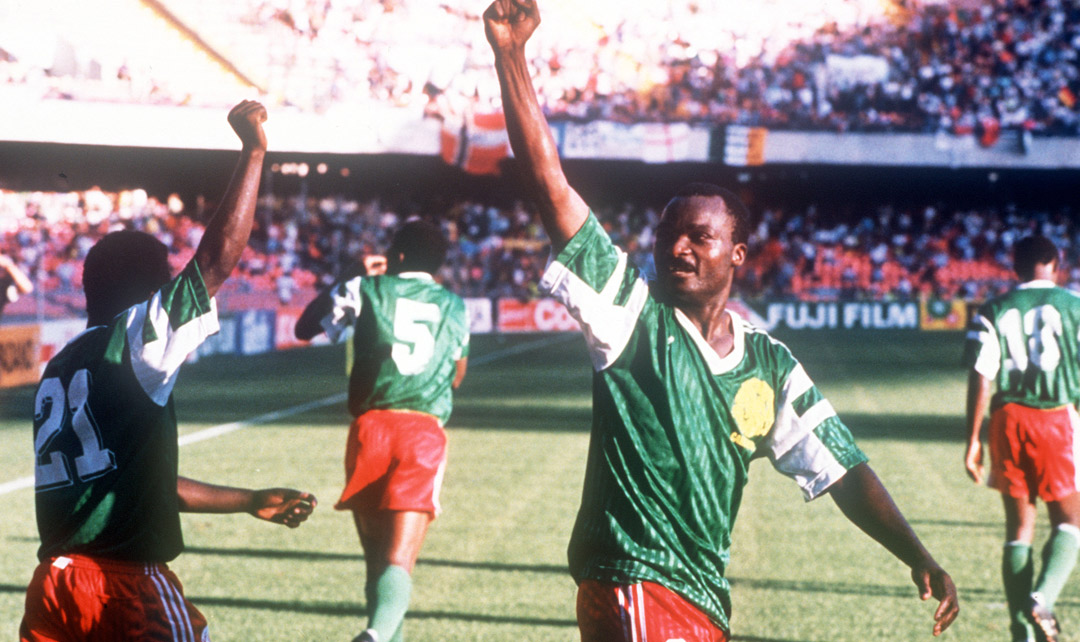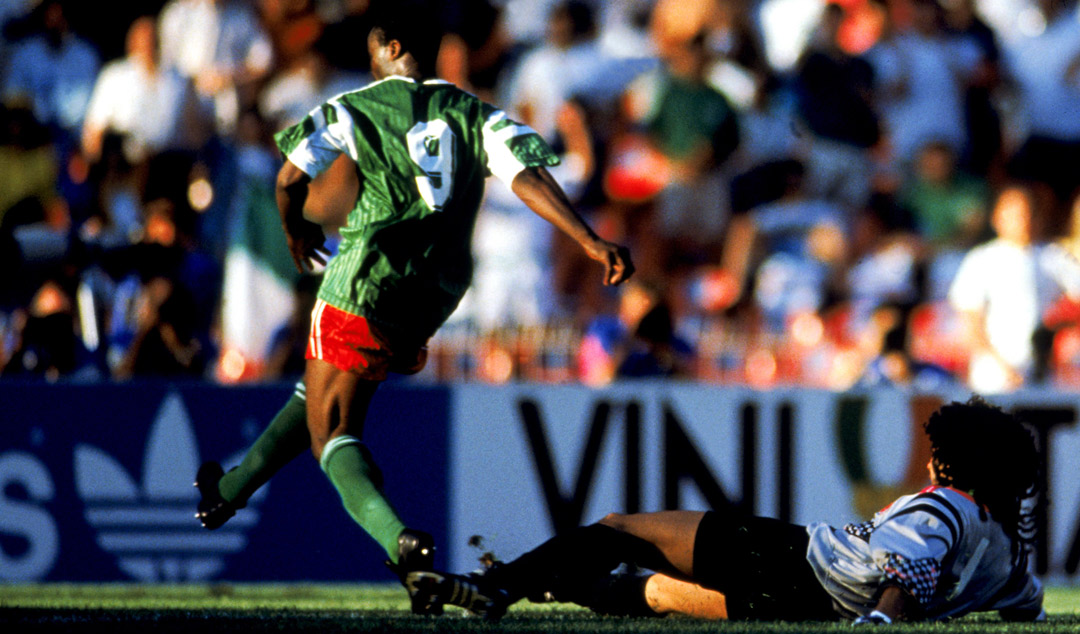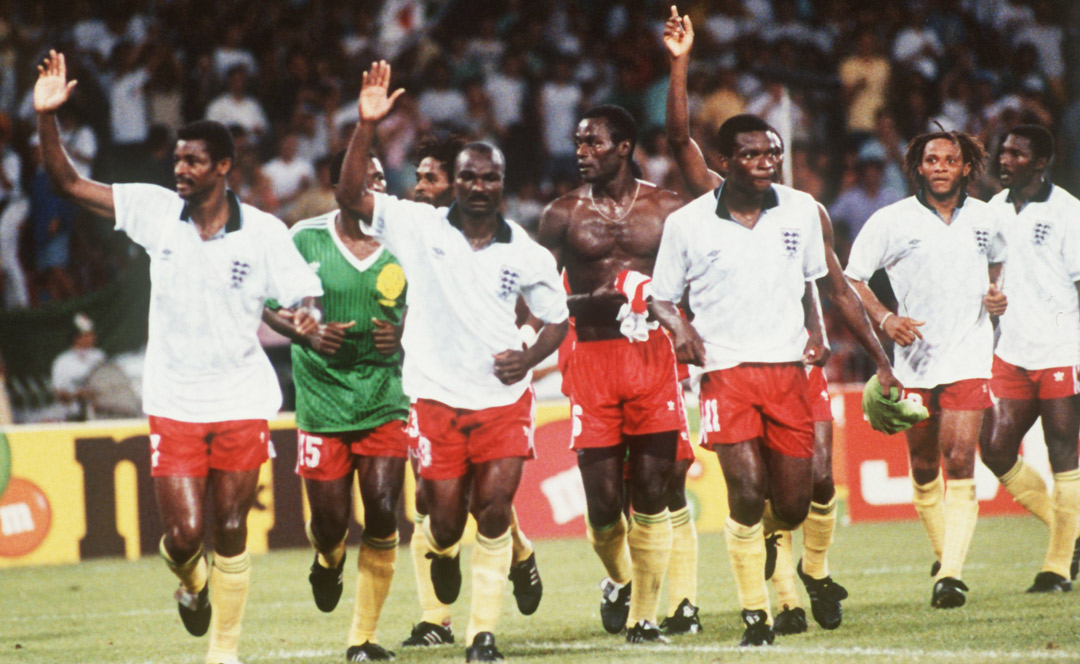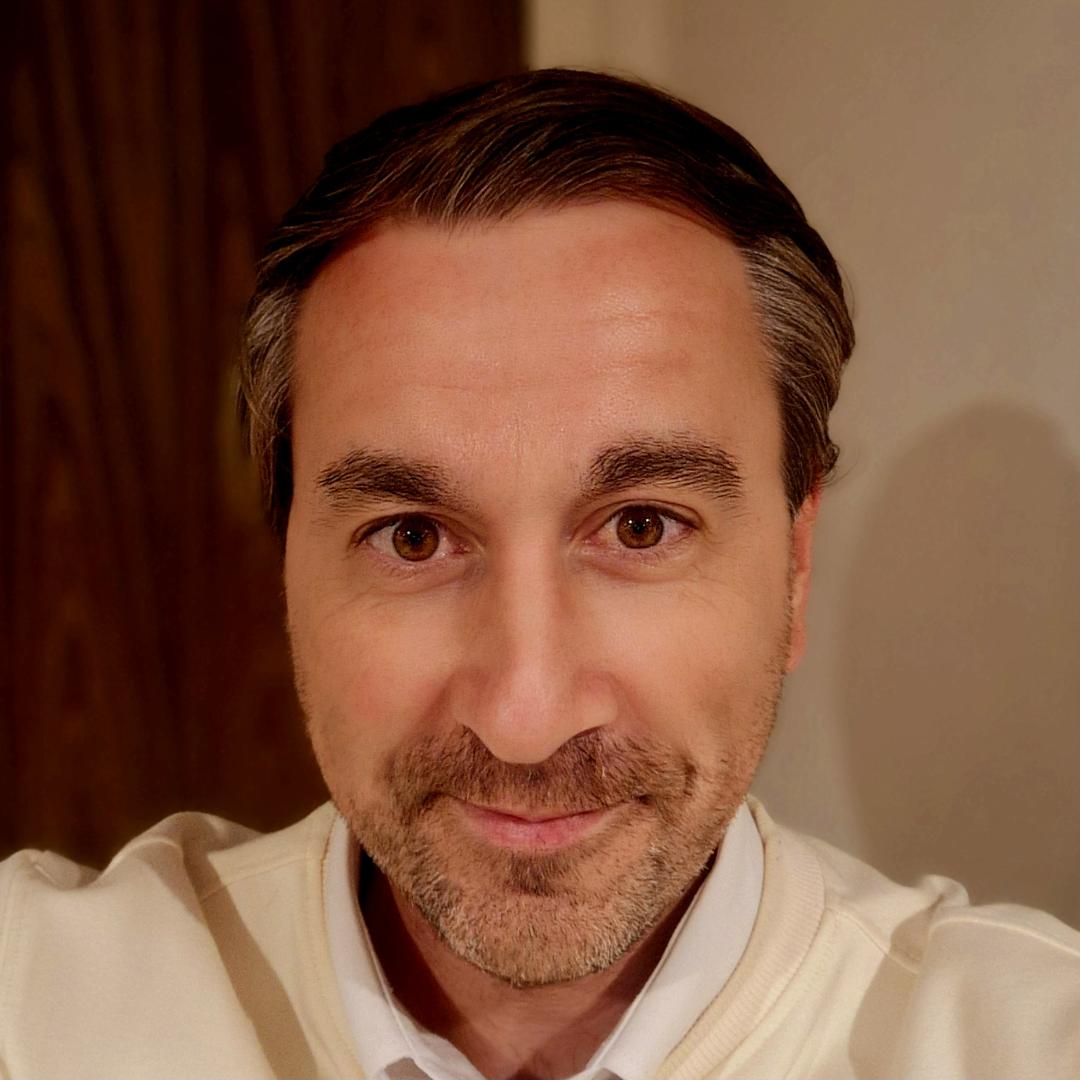Roger Milla on Italia '90: "I didn't think my legs were up to it, to be honest"
The Cameroonian icon tells tells James Eastham how he went from amateur football to World Cup legend – at the age of 38

Before Italia 90, how did you end up playing on the Reunion islands in the Indian Ocean?
It wasn’t really a choice. I’d had enough of the professional game in France and went there to stay at a friend’s for a holiday. I ended up staying nine months and playing for one of the local football teams.
How did you go from that to playing for Cameroon at the World Cup finals?
About six months before the tournament I was back in Cameroon at a testimonial for Theophile Abega [Milla's team-mate from Spain 82]. People started to ask me why I had retired so early. The president insisted that I should be part of the team again.
Did you think your legs were up to it?
Not really, to be honest, but football’s not just a physical game. I’d always been an intelligent player, so I knew if I got into shape I had a chance. My first aim was to get fit, and then it would be up to the coach to decide whether I was good enough.
Did the government put coach Valeri Nepomniachi under pressure to pick you?
Yes. When I wasn’t playing they wanted him to put me through some really hard training sessions to get me into shape. But fortunately I was one of our best players in the pre-tournament friendlies, so I won him over on my own.
You won the opening game 1-0 against holders Argentina. Before kick-off, did you honestly believe you had a chance?
Yes, we were confident. We were up for having a good World Cup and we knew that we had to get off to a good start. Our tactics for that opening match were simply to shut out Maradona. We knew that if we kept Maradona quiet, we had a chance.

Did the Cameroon players party after the game?
No, no. We turned our thoughts to our second game straight away, because we knew if we beat Romania we were through to the second round.
You scored both goals in that game against Romania. Despite all the training, were you surprised that you could do so well at the age of 38?
A little bit. In terms of my ability, no, because I knew technically how good I was. But physically, yes, it was a bit of a shock.
Get FourFourTwo Newsletter
The best features, fun and footballing quizzes, straight to your inbox every week.
We saw your celebratory dance at the corner flag for the first time against Romania. Was that something you had prepared?
No, it was totally spontaneous. I’d never done it before, not even in training.
In the second round you stole the ball from Colombia goalkeeper Rene Higuita to score. Had you planned that?
I was lucky because I played with Carlos Valderrama, the Colombia captain, at Montpellier. We had a great team, including Julio Cesar, the Brazil defender, and a young Laurent Blanc, who had come through the ranks. Through Valderrama I’d seen videos of Higuita dribbling the ball out of his area. I knew if I was quick enough I might be able to take advantage of a mistake. It worked.
So it’s Valderrama’s fault.
[Laughs] Ha, yes!
You lost 3-2 to England in the quarter-finals after leading 2-1. Do you feel the game was a missed opportunity?
Looking back now, you have to say that. We went 1-0 down, but Paul Gascoigne committed a foul in the penalty area and Emmanuel Kunde equalised from the spot – and then Eugene Ekeke put us 2-1 up. We kept going forward because we wanted to entertain people. For us, first and foremost, football was about entertainment, so we wanted to win spectacularly. But it wasn’t to be.
What was the mood like in the Cameroon dressing room afterwards?
We were happy. England knocked us out, but we were happy because we’d had such a great tournament and gone so far. 1990 was an unforgettable experience.
How did the Cameroon squad celebrate after the tournament?
We had a tour of honour in military vehicles in Yaounde in front of thousands of people, which was great.

You returned at the 1994 finals and scored at the age of 42. Was the comeback your idea?
No, it was the Cameroonian people’s. They pushed me to play because they thought I was the only one that could score goals. They just didn’t have faith in any of the other players. At the time I was playing for Tonnerre Yaounde so I was fit and ready. Was I confident? Of course.
Have you discussed the 1990 World Cup with any of the England players since?
Just Paul Gascoigne. I met him at a testimonial match in Greece, and we had the chance to talk for a little while. He’s the only one.
How has your life changed since 1990?
It hasn’t. I realised after the tournament what an impact we’d had on people. But I’ve not changed. My image has, but I’m the same. I’m still able to lead a normal life.
James Eastham is a specialist writer covering French football. He has written for The Guardian, The Independent and When Saturday Comes magazine. He’s interviewed many leading figures in the French game, including Didier Deschamps and Kylian Mbappe. For a decade he also worked as a freelance football scout, covering games at all levels from U16 to the senior national team across France

